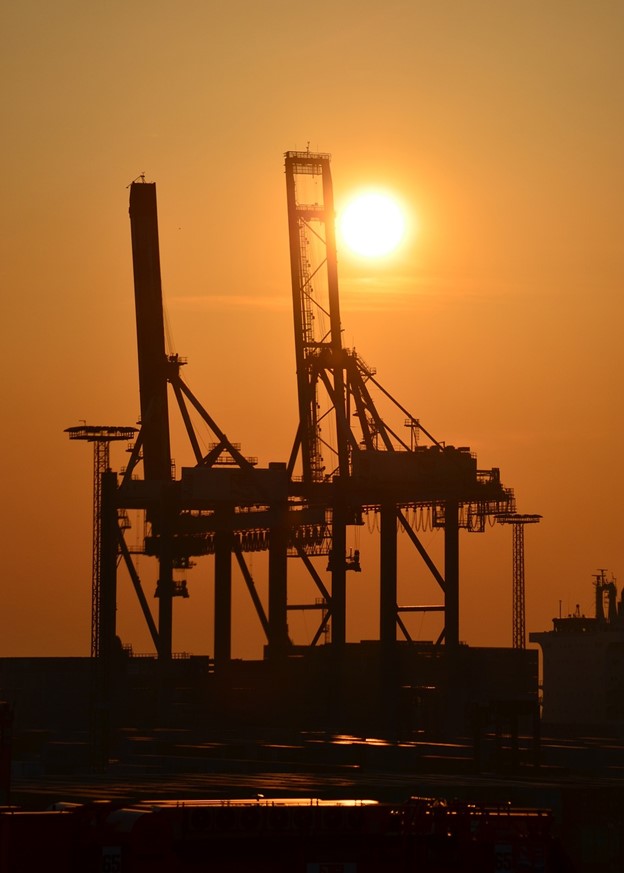On September 12, the Select Committee on the Chinese Communist Party, led by Chairman John Moolenaar (R-MI), House Committee on Homeland Security Chairman Mark E. Green, MD (R-TN), and Subcommittee on Transportation and Maritime Security Chairman and Select Committee Member Carlos Gimenez (R-FL) unveiled a joint investigative report exposing a rising threat to U.S. economic and national security posed by the Chinese Communist Party (CCP).
In June 2023, the House Committee on Homeland Security and the House Select Committee on the Strategic Competition between the United States and the Chinese Communist Party launched a joint investigation into the cybersecurity risks, foreign intelligence threats, and supply chain vulnerabilities at U.S. ports. The investigation focused on the widespread use of foreign equipment and technology, specifically assessing the risks, threats, and vulnerabilities associated with ship-to-shore cranes and related components produced, manufactured, assembled, or installed by Shanghai Zhenhua Heavy Industry Co., Ltd. (ZPMC), a state-owned enterprise (SOE) controlled by the government of the People’s Republic of China (PRC).
The report reveals how Shanghai Zhenhua Heavy Industries (ZPMC)––a company owned and operated in the People’s Republic of China (PRC)––dominates the global market share of ship-to-shore (STS) port cranes, and how the PRC’s broader maritime infrastructure dominance creates significant cybersecurity and national security vulnerabilities for both the United States and our allies. ZPMC currently accounts for nearly 80 percent of the STS cranes in operation at U.S. ports. The report also outlines strategies for how the United States can lead the way in addressing the risks posed by the CCP’s maritime activities and promote a more secure global maritime infrastructure. In addition, a classified annex is available to members and appropriately cleared staff. The lawmakers issued the following statement upon releasing the investigation’s findings.
“The evidence gathered during our joint investigation indicates that ZPMC could, if desired, serve as a Trojan horse capable of helping the CCP and the PRC military exploit and manipulate U.S. maritime equipment and technology at their request. This vulnerability in our critical infrastructure has the potential to affect Americans from coast to coast. By potentially sacrificing long-term economic security for short-term financial gain, we have given the CCP the ability to track the movement of goods through our ports or even halt port activity at the drop of a hat. Amid China’s aggression in the Indo-Pacific, our greatest geopolitical adversary could wield this power to influence global military and commercial activity in the event of escalation. Unfortunately, solutions are not always simple. China maintains unprecedented malign influence over competitors and suppliers. During our investigation, the Committees requested that ABB, a Swedish-Swiss company, take concrete steps to remedy significant vulnerabilities in its China-based supply chains involving US-bound cranes. Sadly, ABB refused and, by doing so, put dollars ahead of the security of the American people. … our investigation proves immense damage may have already been done. This report must be a wake-up call for maritime sector stakeholders and the federal government to address this threat with far more urgency. Our homeland security depends on it.”
According to an AI search, review, China has a stake in five ports in the United States: Miami, Houston, Long Beach, Los Angeles, and Seattle. China’s investment in ports is part of its Belt and Road Initiative, which involves investing in foreign markets and infrastructure. China’s growing role in ports has raised concerns in the United States and other countries. Some of the concerns include: Espionage: China’s ships are increasingly visible at ports where Chinese companies have a stake. Economic coercion: China’s investments in ports could give it economic leverage. Military expansion: China could use its commercial relationships at ports to establish military sites.
It’s not just within continental United States. The House Foreign Affairs Committee has warned that China has invested heavily in the Panama Canal, which is vital to American maritime defense.
Photo: Pixabay
